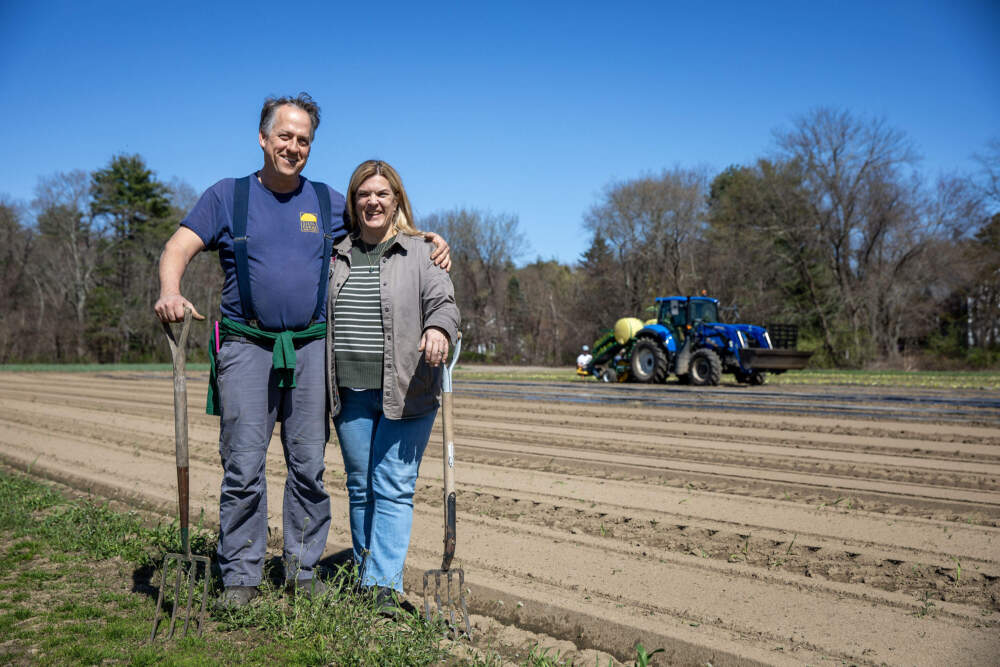Advertisement
An ode to the humble parsnip

Editor's Note: This is an excerpt from WBUR's Sunday morning opinions and ideas newsletter. If you like what you read and want it in your inbox, sign up here.
I haven’t always been a fan of parsnips. They’re not as pretty as carrots, trickier to cook than sweet potatoes — the bummer of every spring farm share box. Or so I thought.
Then I met Ana Sortun, the award-winning chef and proprietor of three establishments that always find their way onto Boston’s “best of” lists: Oleana, Sarma and Sofra Bakery.
Ana taught me parsnips are one of New England’s first spring crops. Because they stay in the ground during the cold winter months (farmers call this “overwintering”), the sugars intensify, making our parsnips incredibly sweet — which means our region’s crop is some of the best in the world. I also learned that this sturdy root vegetable has complex flavors and dimensions worthy of a braise. (Ana thinks they are destined to have their moment as the next big vegetable — move over, Brussels sprouts and cabbage.)
I know what you’re thinking: Of all the things to discuss with Ana, why talk about the humble parsnip? Why not chat with her about being a successful woman in a male-dominated industry? Or her favorite restaurants? Or her thoughts on the state of fusion cooking today?
In short, because I wanted to hear her ideas about something much simpler than that. I wanted to understand how she thinks about the idea of “home.” (After all, she’s one of the featured guests at our May 30 CitySpace event on the topic. Shameless plug: get your tickets here!)
Ana has lived in Boston for more than 30 years, but she’s originally from Seattle, a place so rich with Dungeness crab that they make crab melts (instead of tuna melts). She grew up on her mother’s baking and her grandmother’s scratch cooking (think homemade bread and butter). The food of her childhood bears little resemblance to the spice-rich, vegetable-forward Middle Eastern dishes she’s known for today.
How’d she come so far? The answer is serendipity. Ana was working at the since-closed, longtime Harvard Square haunt Casablanca, when a customer invited her to Turkey, to learn about the culture and food. That two-week trip changed her life. She was immediately enamored with the flavors, the presence of so many vegetables and the dining experience of eating many plates — mezze style — and never feeling heavy or full.

Ana’s husband, Chris Kurth, owns Siena Farms in Sudbury. Named after their daughter, the farm supplies fresh produce to Ana’s restaurants, including parsnips when they’re in season. As part of this project, I spent time in Oleana’s kitchen (where Ana prepared a parsnip skordalia), and we visited Siena Farms to dig up some spring parsnips.
I wanted to visit the farm, because I’d come to understand that cooking seasonally is what gives Ana a sense of time and place. On a sunny day in April, we stood in the middle of a parsnip field with Chris, a person she loves, on the land that feeds her mission to marry Middle Eastern flavors with New England ingredients.
That day, I asked Ana what about the setting makes her feel at home. Her answer: “When I’m walking on this land, I can get a vibe for the soil health, but I’m also looking at the food that’s coming up … To me, home is about being deeply connected to a sense of place. So, being really connected to land, through food, makes sense in my heart.” You can read much more about Ana’s experience and philosophy here, and even watch her make that tasty parsnip skordalia.
Advertisement
Finally, did Ana get me to appreciate the parsnip? Indeed. I’ve been experimenting. A couple of weeks ago, I chopped a handful into chunks, doused them in olive oil, sprinkled them with spices (cumin, salt, pepper, cinnamon, coriander, thyme) and roasted them at 425 degrees for about 25 minutes. Delicious.
